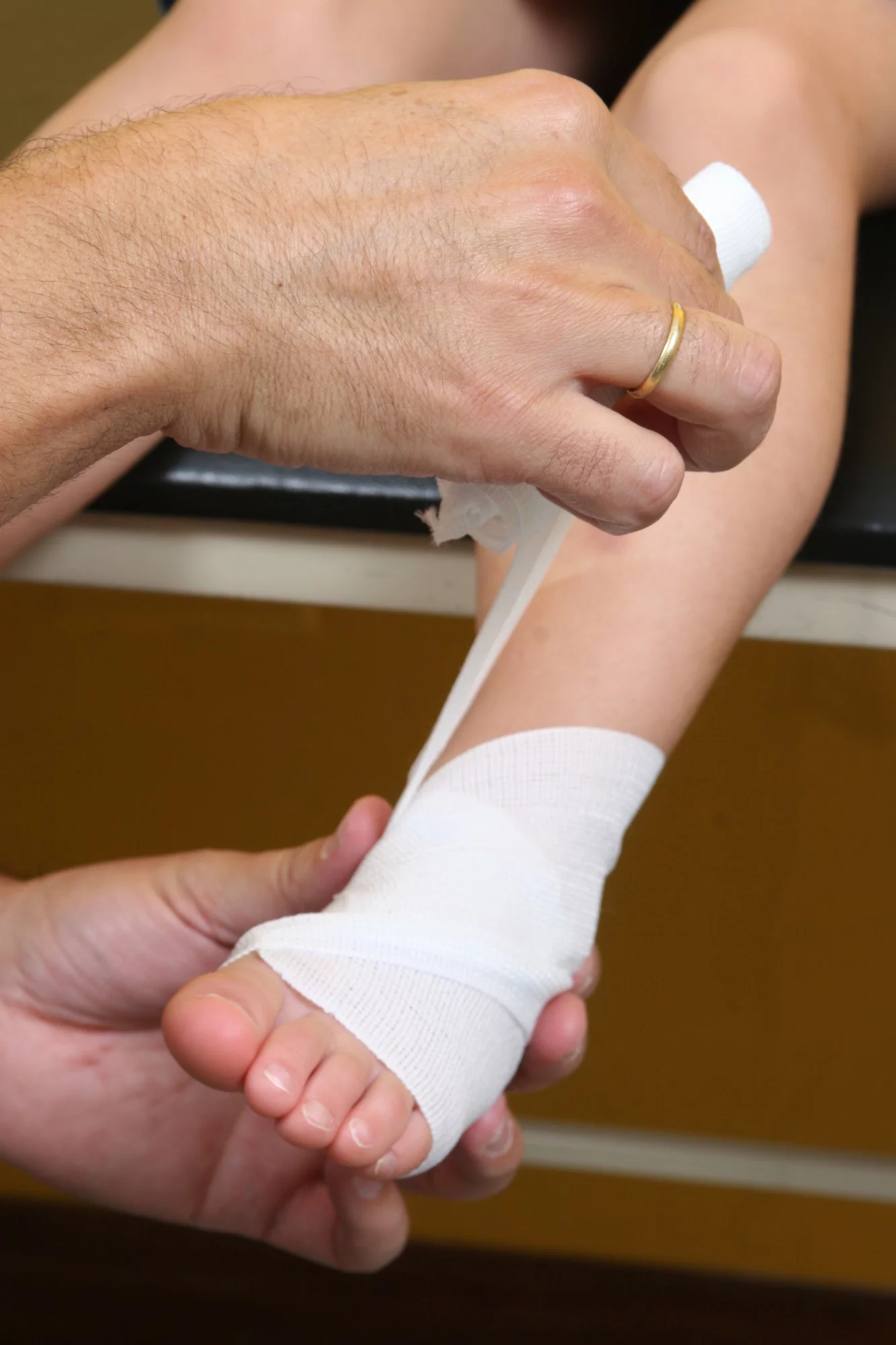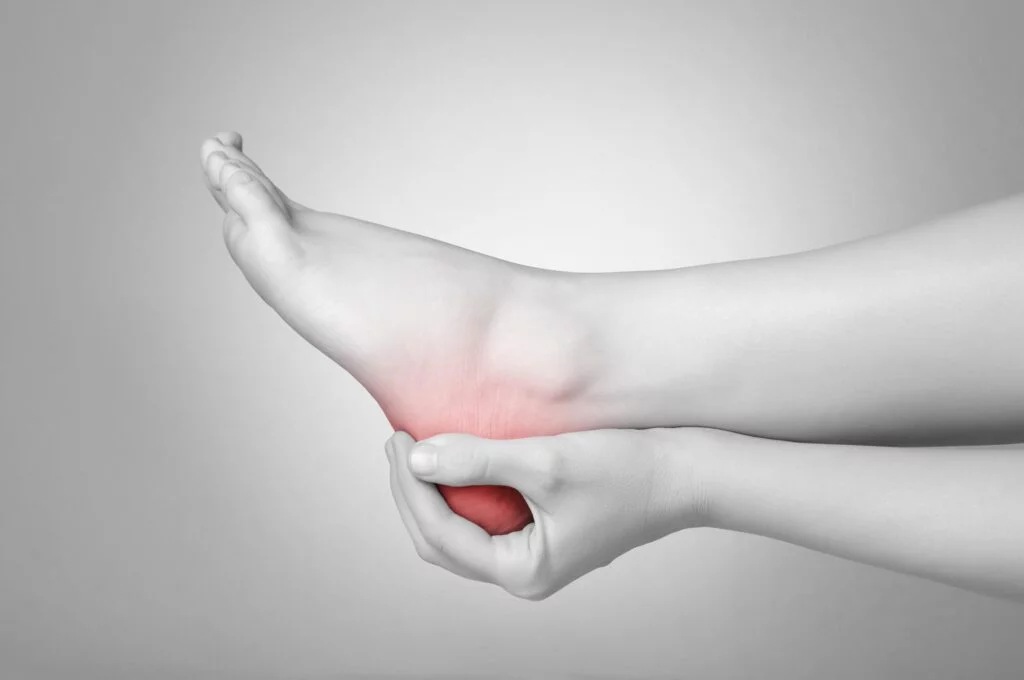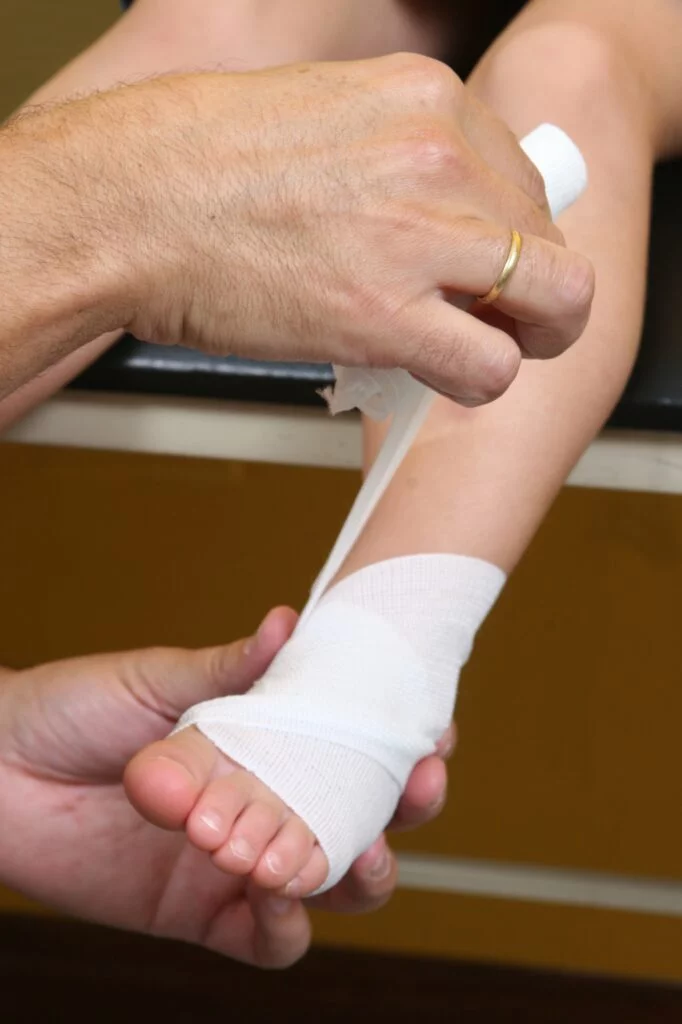What is Heel Pain?
Heel pain usually results from abnormalities in your gait while walking. If these abnormalities place too much stress on the bone and soft tissues of your heel, you may develop pain.
Other factors that lead to heel pain include wearing improper footwear, sports injuries from running and jumping, and being overweight.
What Causes Pain Beneath My Heel?
One of the most common causes of pain beneath your heel is plantar fasciitis, a condition that occurs when the band of tissue that runs along the bottom of your foot becomes inflamed. Athletes who run and jump a lot are especially prone to plantar fasciitis.
The plantar fascia connects your heel to the ball of your foot. This tissue can stretch or tear as a result of repetitive stress, leading to inflammation.
Heel spurs, which are calcium deposits, may develop on the heel bone of people with plantar fasciitis. Heel spurs appear on an X-ray as bony protrusions that may extend as far as half an inch.
What Causes Pain Behind My Heel?
Pain behind your heel may be due to Achilles tendonitis. The Achilles tendon attaches your calf muscle to your heel bone and often becomes inflamed by running too much or wearing shoes that dig into the back of your heel. Without treatment, Achilles tendonitis can become a chronic condition.
How is Heel Pain Diagnosed and Treated?
To determine the underlying cause of your heel pain, our Providers begin with a careful review of your symptoms and medical history. You have an examination of your foot and may require diagnostic imaging tests, such as an on-site digital X-ray or musculoskeletal ultrasound.
Then, we recommend the best treatment for your specific condition. Many types of heel pain improve with non-surgical treatments, such as:
- Stretching exercises or physical therapy
- Modifying activities
- Changing footwear
- Icing the heel
- Taking medication for pain
- Padding, taping, or strapping the foot
- Wearing an orthotic device
- Wearing a night splint
- Corticosteroid injections
If your heel pain is severe and continues despite conservative treatments, our Providers may recommend surgery.
For expert diagnosis and treatment of heel pain, call us or book an appointment online today.



